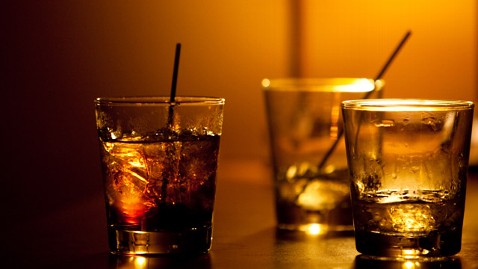The Problems Alcohol Can Help You Solve

Image credit: Vetta/Getty Images
For wine and beer lovers, the headlines might be a bit intoxicating.
A paper titled " Uncorking the muse: Alcohol intoxication facilitates creative problem solving" was the focus of a flurry of coverage on Thursday. In short, the study lends long-awaited credence to the idea that, when faced with certain creative tasks, a bit of alcohol might not be a bad idea.
Specifically, the study, published in the journal Consciousness and Cognition earlier this year, suggests that a certain amount of alcohol - enough to make you blow a 0.075 on a breathalyzer, to be exact - could nudge your mind just enough out of focus to be able to explore unorthodox solutions to a problem. Whether this nudge is helpful or detrimental depends on the problem at hand.
"There are times where having a bit of alcohol might help with you with what you are trying to accomplish," said first study author Andrew Jarosz, a graduate student at the University of Illinois at Chicago.
"That's kind of cool thing about study; we found a time when having less focus is helpful."
What Jarosz and co-authors did to determine this was to take 40 men who identified themselves as social drinkers and treat half of them to enough vodka and cranberry juice drinks to get them to the desired level of intoxication. The other half remained sober.
The researchers then administered a series of 15 brain teasers that relied on non-linear thinking. One example of such a brain teaser would involve the researcher giving the subject a series of three words - like blue, cottage and Swiss - and the subject would then answer with the word that would be associated with them - in this case, cheese.
What Jarosz and his colleagues found was that the intoxicated subjects scored 8.7 correct answers, on average, while the sober participants averaged only 6.3. The inebriated subjects also provided their answers more quickly, beating their sober counterparts by nearly four seconds per question.
"There are two ways to tell someone is doing well around a set of problems," Jarosz said. "They could be solving more of them, or they could be faster at solving them correctly… The fact that we saw increases in both accuracy in speed suggests that they're getting better all around at solving these problems."
Others with expertise in how alcohol affects the brain said the findings did, indeed, illustrate that there are certain tasks for which a little bit of alcohol might do some good.
"Another way in which this work can be interpreted is that alcohol at this blood level increases impulsivity," Tabakoff said in an email. "This could be beneficial in this particular test design - i.e. a very limited time in which to provide an answer and deleterious if something has to be checked and the response bears consequence."
So does getting hammered increase your IQ? With the rash of headlines on Thursday like "Drinking Alcohol Makes You Smarter," it might be a tantalizing conclusion - and, Jarosz said, a "complete misinterpretation."
"We're not going to argue 'smarter' or 'intelligence' or anything like that," he said. "In some cases, it's beneficial. Is it beneficial in all cases? No, we're not saying that.
"I obviously would not suggest you drink a vodka cranberry before taking the SAT," Jarosz continued. "That is a time when having attentional control is useful. But there may be cases where having decreased attentional control is useful."
Like that next impromptu ideas meeting at the bar near the office? Jarosz was hesitant to say for certain. "We don't have the data to support this," he said.
"But," he conceded, "if your goal is to get to more remote or less accessible ideas, alcohol might help you in that situation."